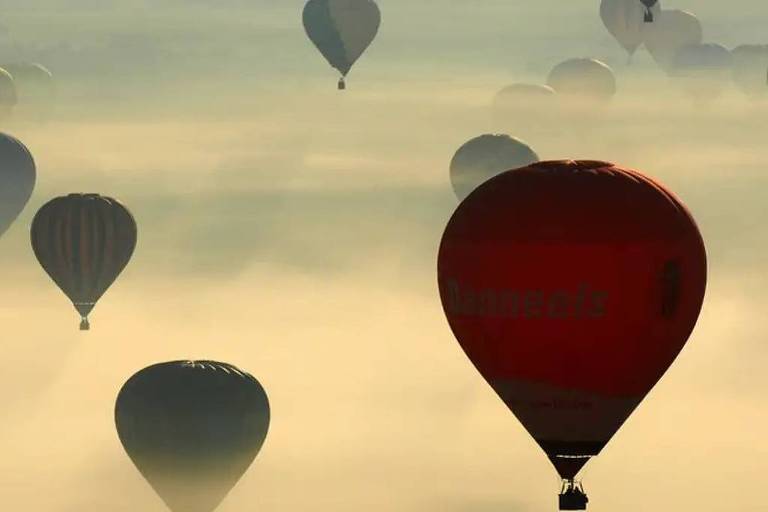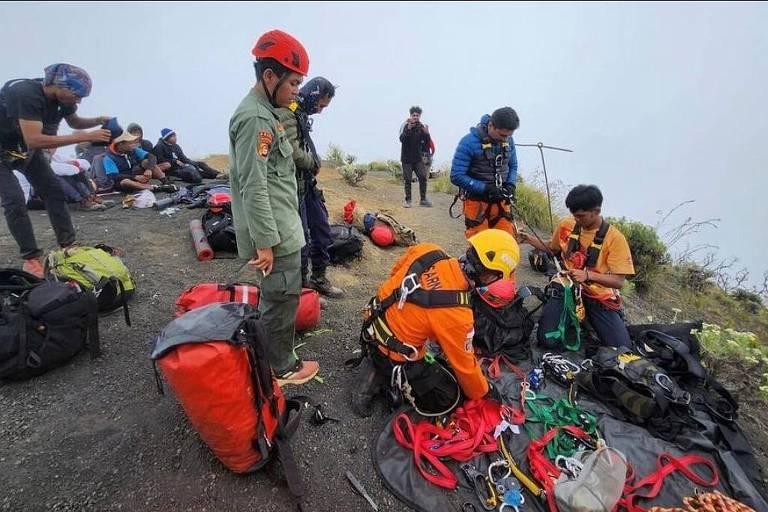What are the risks of adventure tourism and how to protect yourself from them?

The tragic death of Juliana Marins , 26, while hiking in Indonesia , has reignited a debate about the risks involved in adventure tourism. The publicist was left behind by her guide . The travel agency that sold the tour was also banned from Mount Rijani National Park , where the tragedy occurred.
The incident highlighted the lack of safety protocols and emergency plans , but unfortunately, it was added to other tragedies that occurred in Brazil last month. In São Paulo and Santa Catarina , two balloon accidents led to the death of nine people in total and left dozens injured. In both incidents, the pilots were not licensed.

In 2022, scenes of the collapse of a seawall in Capitólio (MG) that killed ten tourists on a pleasure boat spread around the world. At the time, even with the warning that there was a risk of the structure falling, the boats took a long time to leave the site.
Although there are specific technical standards for adventure tourism activities in Brazil, such as hiking, rafting, zip-lining and diving, the sector suffers from a lack of supervision and informality, which makes it difficult to qualify professionals and can have an impact on consumer safety. However, according to experts consulted by DW, even though the absence of dangers is inevitable in adventure tourism, there are ways in which tourists can protect themselves to minimize risks.
According to Luiz Del Vigna, executive director and one of the founders of Abeta (Brazilian Association of Ecotourism and Adventure Tourism Companies), there are three specific rules, which were created in Brazil and became international regulations by ISO (International Organization for Standardization).
According to him, the first of these, ABNT ISO NBR 21101, which establishes a risk management system for those who provide adventure tourism services, is the "backbone of the process". "It determines that the agency that offers a specific modality, such as a trail circuit, for example, makes inventories of the dangers and risks of the activity and develops an emergency response plan", says Del Vigna.
In turn, the second technical standard, 21.102, defines the skills and knowledge required for leaders in adventure tourism activities, including first aid and emergency care – which was lacking in both the cases of Juliana Marins and the accidents involving balloons in Boituva (SP) and Praia Grande (SC).
The latest regulation for adventure tourism in Brazil, 21.103, specifies the minimum information that must be provided to participants before, during and after the chosen activity. "It contains a complete description of the circuit and everything that could go wrong there, including the right to choose not to go if they feel unsafe," adds the executive director of Abeta.
According to Professor Aylana Laíssa Medeiros Borges, from the CET (Center of Excellence in Tourism) at UnB (University of Brasília), this information is important so that tourists know what to do and who to contact in the event of an accident. In addition, the guide or person responsible for the activity should communicate the profile of the group of participants.
"For example, are they athletes or sedentary? This will mean that the activity will be regulated, because it is not possible to create a walking dynamic on a trail that not everyone can handle," says the tourism expert, who points out that other data, such as weather conditions and level of difficulty, must also be taken into account.
"It also ends up being a security measure for the travel agency," explains Borges. According to her, when there is no risk management and the risk of the tourist activity and the place where it is carried out is not taken into consideration, "it is very worrying."
On adventure tourism trips in Brazil, it is not uncommon to receive a "waiver of responsibility" from the travel agency, in which the service provider tries to exempt itself from any blame if a problem occurs during the activity. However, says Luiz Del Vigna, this instrument is invalid and goes against the provisions of ABNT ISO NBR 21103.
"The law requires that the risks identified in the inventory be listed. This disclaimer does not exist, it is absurd. If you have a serious company and you achieve your objective, you will have a document informing everything", points out the director of Abeta.
However, the situation becomes more complicated when one takes into account the difficulties in monitoring the implementation of technical standards by tourism operators. As Aylana Borges explains, the Ministry of Tourism is responsible for determining control, but there is no specific identification of who carries out this monitoring, so regulation ends up being the responsibility of complaints.

The problem is compounded by widespread informality. According to estimates by Abeta in partnership with Anhembi Morumbi University, before the pandemic, there were around 1,500 companies registered with Cadastur as adventure tourism operators. However, Del Vigna acknowledges that this number is outdated and that the size of the informal market is incalculable.
"Those who operate informally are outlaws. Sometimes they have at most an operating license from the city government, offer adventure tourism, but do not comply with the law because they do not have a security system in place," he says. However, certifying a company according to technical standards, which in some cases can cost R$20,000, creates limits that are not only financial, since without supervision, it weakens the sector, creating distortions in the market.
"For example, a horseback ride can only be offered to people over 7 years old. There are families with children younger than that who want to go on the ride. If something goes wrong with the certified provider, he will be arrested, so he will not serve these families. So, the travel agency will indicate who does not follow the rules, so as not to lose the client, since the government does not supervise in advance", he explains.
Aylana Borges points out that safety in tourism is a shared responsibility, involving public and private managers, tourists and the local community. According to her, this is one of the biggest challenges facing the activity in Brazil.
When it comes to adventure tours, the tourist is the one at the forefront of the process. They are the ones who pay for the tour and who can suffer the consequences of poor or non-existent risk management, emphasizes Del Vigna. "It is essential that the consumer starts to demand it," says the director of Abeta.
One of the main channels for checking whether a service provider or hired guide is regularized is Cadastur, from the Ministry of Tourism. Through the online platform, consumers can access the registry of service providers and check whether the person or company is listed as regularized by the federal government.
"In terms of the work of this professional, we have this support in the legislation, which provides for inspection and penalties in case of non-compliance with the provisions of the law. The professional must have a course, be registered and, in addition, have a card from the Ministry of Tourism identifying the guide", highlights Aylana Borges. According to her, it is essential that the tourist asks the professional to present this document.
Del Vigna also points out that it is advisable to consult online review sites, such as Google itself, as long as they are not considered the final word on the quality of the service. "And ask for information about the security system. Ask if it is certified – and that is the golden question," he says.
"The tourist's hand is not tied. Are you going to put your son, your grandson, a loved one, on a zip line that crosses a valley at a height of 140 meters and is not certified?" he asks.
For both experts, even if there is a lack of communication on the part of the government, tourists also have an active role in creating safer experiences. "It is important to educate tourists: to understand what type of tourism they like to do, what precautions they need to take, what risks are involved, which channels they should use and how to seek information about what is being offered," concludes the UnB professor.
uol





